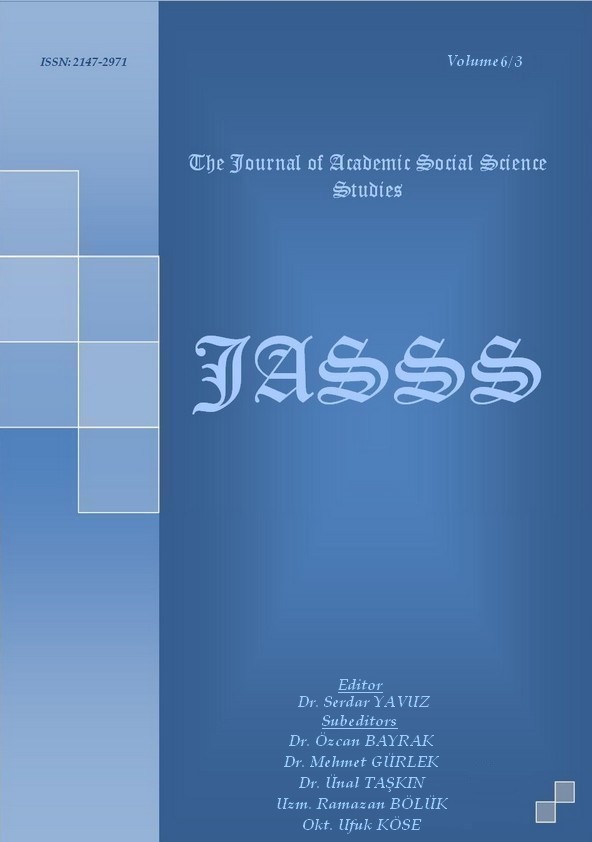KAVRAM KARİKATÜRLERİYLE ZENGİNLEŞTİRİLMİŞ ÖĞRENME ORTAMININ ÖĞRENCİLERİNİN MATEMATİK KAYGILARINA ETKİSİNİN İNCELENMESİ
Author :
Abstract
Bu araştırmanın amacı, kavram karikatürleri ile zenginleştirilmiş öğrenme ortamının öğrencilerin matematik kaygı düzeylerine etkisini belirlemektir. Çalışmanın gerçekleşmesinde yarı deneysel kontrol gruplu ön test-son test modelinden yararlanılmıştır. Araştırmanın çalışma grubunu 2011–2012 öğretim yılında İstanbul ili Avrupa yakasındaki bir ilköğretim okulunun iki 7. sınıf şubesinde okuyan 77 öğrenci oluşturmaktadır. Araştırmada, matematik programındaki 7. sınıf çokgenler konusuna ait kazanımlar doğrultusunda on iki adet kavram karikatürü geliştirilmiştir. Kavram karikatürlerinin geliştirilmesi aşamasında pilot çalışma yapılarak öncelikle çokgenler konusunda öğrencilerde var olabilecek kavram yanılgıları tespit edilmiştir. Pilot çalışma sonucunda ortaya çıkan öğrenci yanılgıları kavram karikatürlerinin oluşturulmasında göz önüne alınmıştır. Uygulama dört hafta devam etmiştir. Öğrencilerin sosyal öğrenme ortamı oluşturarak kavramları daha derinlemesine tartışma ve kendi düşünme kalıplarını sorgulayabilmeleri için aynı düşünceyi paylaşan öğrencilerden meydana gelen dörder kişilik homojen gruplardan yararlanılmıştır. Araştırma verileri öğrencilerin matematik kaygı düzeylerini belirlemek için Erol (1989) tarafından geliştirilen “Matematiğe Kaygı Ölçeği” ve uygulama süreci hakkında öğrencilerin yazılı görüşlerinden elde edilmiştir. Toplanan nicel veriler bağımlı ve bağımsız örneklemler t-testi ile nitel veriler ise betimsel olarak analiz edilmiştir. Araştırmanın sonuçlarına göre kavram karikatürlerinin öğrencilerin matematiğe kaygı düzeylerine anlamlı etkisinin olduğu görülmüştür. Ayrıca, öğrencilerin kavram karikatürlerini çok sevdikleri, matematik dersine olan ilgilerinin arttığı belirlenmiştir. Elde edilen bulgular ışığında kavram karikatürleri ile araştırma yapacaklara yönelik öneriler geliştirilmiştir.
Keywords
Abstract
The purpose of this research is to determine the effect of learning environment enriched with concept cartoons on the students' mathematics anxiety. The research has been designed as the pre-test post-test with quasi experimental control group. The research particapiant are composed of 77 two 7 th grade students attending an elementary school on the European side of İstanbul during the 2011-2012 Academic Year. Total of twelve concept cartoons were developed within the scope of the study, in line with the skills relating to the ‘Polygons’ subject included in the 7th grade mathematics curriculum. In the first place, a pilot study was carried out during the stage of development of concept cartoons in order to identify any misconceptions students may have had regarding the polygons subject. The misconceptions identified during the pilot study were taken into consideration in development of concept cartoons. Implementation continued for four weeks. Homogenous groups, each consisting of four students sharing the same opinions, were utilized in order to enable them to discuss the concepts more comprehensively and to question their own thinking patterns by creating a social learning environment. The data of the research was collected by “Mathematical Anxiety Scale” developed by Erol (1989) and through the written opinions of the students about implementation process. While the quantitative data was analyzed by performing the t-test for dependent and independent samples, the qualitative data was analyzed descriptively. The results of the research have shown that concept cartoons have a significant effect on the students' mathematical anxiety. Besides, it was determined that students liked concept cartoons very much and their interest to the mathematics lesson was increased. In the light of the findings of this study, the researchers have developed suggestions for those who will conduct further researches on concept cartoons.





